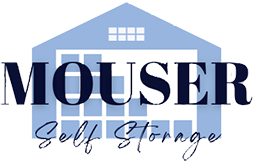Storage units provide a convenient solution for storing belongings, whether for personal or business use. However, one common question that arises is whether these units can be modified to better fit specific needs. The answer depends on various factors, including the policies of the storage facility, the type of modifications required, and the purpose of the changes.
We are Mouser Self Storage, serving South Fort Worth, Alvarado, and Johnson County. Call us today at 682-800-3949 for current pricing information.
In this article, we explore the possibilities and limitations of modifying storage units.
Understanding Storage Facility Policies
Before making any modifications to a storage unit, it is essential to review the facility’s policies. Most storage providers have strict guidelines about alterations to storage spaces to ensure the safety and security of all tenants. Some facilities may allow minor, non-permanent changes, while others prohibit modifications entirely. Speaking with the facility manager and obtaining written permission before making any adjustments is always advisable.
Types of Modifications You Can Make to storage units
Although modifications are generally restricted, there are several ways to customize a storage unit within allowable limits. Here are some modifications that might be acceptable:
- Shelving and Storage Racks – Many storage places allow tenants to add free-standing shelving units or stackable storage racks. These additions can help maximize vertical space and improve organization without causing permanent damage.
- Temporary Flooring – Some renters opt to install temporary flooring, such as interlocking rubber mats or plywood, to protect items from moisture or dust accumulation. This is often permissible as long as the flooring is removable without causing damage to the unit.
- Lighting Solutions – While most storage units lack built-in lighting, battery-operated LED lights or magnetic work lights can be added for better visibility. Plug-in lights may be allowed if the unit has electrical outlets, but hardwiring fixtures is generally prohibited.
- Climate Control Adjustments – If climate control is not provided by the facility, renters may explore portable dehumidifiers or moisture absorbers to protect their belongings. However, the use of external air conditioning or heating units is usually not allowed.
- Security Enhancements – Some storage facilities permit the use of upgraded locks or security systems, such as motion detectors or smart locks, for added protection. However, altering the unit’s built-in security features is generally not permitted.
Prohibited Modifications
While some changes are acceptable, others are strictly forbidden due to safety, structural integrity, and compliance concerns. Commonly prohibited modifications include:
- Structural Alterations – Drilling holes, painting walls, or modifying doors and ceilings is generally not allowed.
- Electrical Work – Installing permanent lighting, electrical outlets, or other fixtures typically violates storage facility policies.
- Living Quarters – Storage units are not intended for residential use. Any modifications that suggest habitation, such as installing plumbing or insulation, are strictly forbidden.
- Hazardous Material Storage – Storing flammable, toxic, or otherwise hazardous materials is prohibited and can result in termination of the rental agreement.
Alternative Solutions for Customization
If extensive modifications are necessary, consider alternatives such as:
- Upgrading to a Specialty Storage Unit – Some facilities offer climate-controlled, drive-up, or oversized units that better suit specific needs without requiring modifications.
- Portable Storage Containers – For greater flexibility, portable storage containers can be customized and placed on private property where modifications are allowed.
- Workshop or Warehouse Spaces – If modifications are crucial, renting a dedicated workshop or small warehouse space might be a better option than modifying a storage unit.
Conclusion
While some modifications to storage units are possible, most facilities impose restrictions to maintain security and structural integrity. The key to making acceptable changes lies in understanding facility policies, obtaining permission, and opting for non-permanent adjustments. If your storage needs require significant modifications, exploring alternative solutions may be the best route to ensure compliance and functionality.
A final word about Mouser Self Storage
Mouser Self Storage and our sister company, Blue Mound 287 Self Storage in Haslet, offer storage solutions for all manner of needs, from car storage to RV self storage to boat storage units to small hobby shops . . . and, of course, storage for your household belongings. Call us today.

